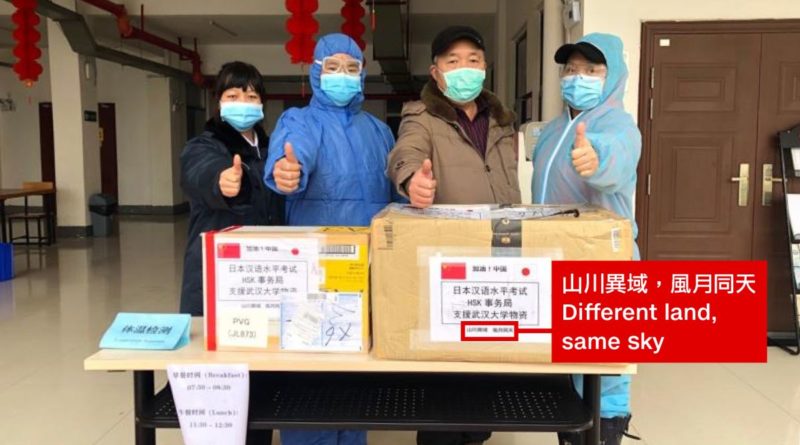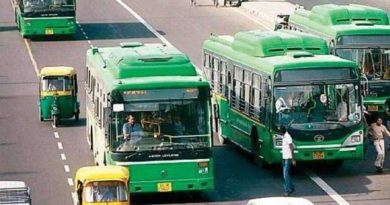Japan pinches Corona and controls without doing much
Why was the Covid-19 disaster in Japan less? This is a big question that can have many answers. Now the reason is whether the Japanese way of living, or their ‘better immunity’ means better immunity of the body.
In Japan only, the death rate from Covid-19 is not the lowest among countries in that region. South Korea, Taiwan, Hong Kong and Vietnam also have significantly lower mortality rates.
But in early 2020, Covid-19 in Japan had less than average deaths. However, in April there were nearly a thousand deaths in Japan – probably due to Covid-19. However, if we look at the statistics for the whole year, then it may be that the annual deaths in Japan will be less than in 2019.
This thing is also notable because there are many circumstances in Japan that can make it an easy prey for Covid-19. Japan did not make as much effort to avoid the Covid-19 epidemic as Japan’s neighbors.
What happened in Japan?
At the time when the Chinese city of Wuhan was at its peak in terms of infection, Wuhan’s hospitals were fully filled and most countries closed their doors to Chinese travellers, even then Japan did not close its borders.
It was clear early in the outbreak of Corona virus infection that Covid-19 could prove to be the most dangerous for the elderly, especially when they come in direct contact with an infected person.
Japan also has the largest number of elderly people compared to other countries, and most people live in large crowded cities.
There are about three and seventy million people living in Greater Tokyo who use crowded trains to get to and from the city.
Then Japan did not even accept the World Health Organization’s advice to do ‘test, test and test’. Even now, a total of three and a half lakh PCR tests have been done in Japan, which is only 0.27 percent of the population there.
Nor did Japan implement a stringent lockdown like Europe.
In April, the Government of Japan ordered the introduction of emergency in the country. But people were requested to ‘stay in homes’ on voluntary basis. For this, the government did not force. Although the non-essential business was asked to close, there was no penalty for opening them.
Japan, like New Zealand and Vietnam, that have succeeded against the epidemic and shown it to be under control, have not taken steps like closing borders, creating strict rules for lockdown or quarantine and extensively testing COVID-19.
Despite this, five months after the first case of corona infection appeared in Japan, there have been 20 thousand confirmed cases and more than 1000 deaths due to Covid-19.
Emergency has been lifted in Japan and normal life is returning to a very fast track.
Many scientific evidences have also established that Japan has actually stopped the spread of infection. At least for now it is believed.
In Japan, telecom company SoftBank conducted Covid-19 anti-body tests of its 40,000 employees, which showed that only 0.24 percent of the employees were exposed to the corona virus.
Nearly eight thousand people were tested in Tokyo under casual testing, in which only 0.1 percent was found to be corona positive.
Last month, Japanese Prime Minister Shinzo Abe proudly announced the ‘Japan Model’ while announcing the removal of emergency and said that ‘other countries should also learn from Japan’.
What is special about Japan?
If you listen to Taro Aso, the Deputy Prime Minister of Japan, this has become possible due to the ‘high quality lifestyle’ of the Japanese.
In this case, he says that “the people of Japan live a better life than any other country and this is due to being culturally better”.
Many people have criticized Deputy Prime Minister Taro Aso’s statement, saying that ‘this statement came because of their thinking of understanding their race better than others and it is a sign of internationalism’.
But there is no doubt that many Japanese and some scientists think that ‘there is something that is different in Japan’ – which is sometimes called ‘X-factor’, which is also there during the Covid-19 epidemic.
One possibility is that in Japanese society, there are no customs like hugging or kissing each other. Therefore, people keep a considerable distance from each other. It can be called Physical Distancing or which has been given the name of Social Distancing during the time of epidemic and it is automatically followed in Japan.
However, experts do not consider this to be the right answer to limiting infection in Japan.
Do Japanese Have Special Immunity?
Professor Tatsuhiko Kodama of Tokyo University, who has studied Japanese patients, believes that Covid was in Japan for some time.
He says, “Not Covid-19, but something similar to it, which gave many Japanese the immunity to fight this epidemic.”
But did they see something like this among their patients?
In response to this, he says, “We were surprised to see some samples. From the scientific point of view, it has been found that these people have been infected with Covid in the past, which may have been very similar to the recent Corona virus.”
He says, “It is quite likely that a viral infection like SARS has spread in Japan or in the region like China, South Korea, Taiwan, Hong Kong and Southeast Asia before, which has also had a low mortality rate and has caused epidemics.” However, some questions arise on this theory.
As Professor Kenji Shibuya, director of King’s College, London, says, “How can it be that a viral infection spreads in Asia and remains confined there?”
Although Professor Kenji does not deny that there is something special in Japan that the infection was so limited there, he does not agree with anything like ‘X-factor’ among the Japanese.
They believe that the countries that have controlled the infection could do so only because the people there did some things seriously.
Japanese people have a habit of applying masks on their face since about a hundred years ago, i.e. , since the time of the 1919 flu pandemic and since then people have not stopped wearing masks.
There is a belief in Japanese society that if someone gets a cold, he immediately starts wearing masks to protect those around him.
Keiji Fukuda, director of the School of Public Health at Hong Kong University, says, “Mask infection causes a lot of obstruction. It also signals to people to be cautious by looking at masks and that there is an infection around you, believe it.”
Due to the spread of TB in Japan in the 1950s, a good public health system was developed there, through which contact tracing was done. It is also an important thing to fight an epidemic.
Japan soon recognized three-C
Experts believe that Japan very soon understood two very important patterns of this epidemic.
According to researcher Dr. Kuzuaki Jindai at Kyoto University, “more than one-third of infections in Japan spread from similar places.” Many people were infected in the music party, where there was crowd and noise. People were told about them as soon as possible so that they do not go there.
A team of researchers found that ‘in places where there is congestion, difficulty breathing, people stand close to each other’, there is a greater risk.
That is why parties, gyms, bars, clubs etc. were placed in the category of most threatened places.
In addition, the team also found that those who have mild infections are not able to infect others.
An early study in Japan found that around 80 percent of people who are infected with SARS-Covid-2 will not be able to infect others.
Whereas only 20 percent people were found who had heavy infections.
Based on this, the Government of Japan, in its national campaign for the prevention of Covid-19, was able to suggest citizens to avoid ‘three-C’. And they were:
Do not go to places with closed and poor ventilation
Avoid crowded places as much as possible
Do not talk very close
Dr. Jindai says, “Instead of advising people to just sit in the houses, the strategy of informing people came more from our work.” However, in mid-March, there was a sharp jump in cases in Tokyo city of Japan and it was very similar to the boom in Milan in Italy, London in UK and New York City in USA.
But then how things worked out, was Japan lucky, did the Japanese adopt smart ways, there are many answers.
Question of right time
Professor Kenji Shibuya believes that learning from Japan is not very different from anywhere else. He says that it was a matter of time for him to learn a lesson.
Prime Minister Shinzo Abe imposed a non-binding emergency on April 7 and appealed to the people to stay home if possible.
“If there was a delay in taking this step, then we too could have faced a situation like New York or London. Right now the death rate in Japan is very low.
Professor Kenji Shibuya says, “A recent study at Columbia University stated that thousands of lives could have been saved if New York had been put on lockdown two weeks earlier.”
A recent report by the United States Center for Disease Control and Prevention states that patients with heart disease, obesity, and diabetes are six times more likely to be hospitalized than other patients with corona. Among these, the death rate is also 12 times higher.
Japan is in a better position than other developed countries in terms of heart disease and obesity and it has the lowest rate here. Despite this, scientists believe that these things do not answer all things.
Professor Fukuda says, “This kind of physical distance can make some difference, but I think other reasons are more important. We have learned from Covid that no general analysis of what we see can be done. Can. A lot of factors work behind something. “
Government said, people heard
Now if we go to the ‘Japan Model’ talk of the Japanese Prime Minister Shinzo Abe, are there any lessons to be learned in it? It is a fact that Japan has controlled the infection. There the rate of infection is very low and due to this the mortality rate is also low.
So is there any way forward? The answer is yes and no. There is no such thing as an ‘X-factor’ in Japan – the formula there too That is to break the chain of infection, do not let it grow. But one thing is special that the people of Japan believe in the government there and follow the instructions of the government.
The government of Japan did not even ask people to imprison themselves in the houses, but only gave some advice and kept distance from the crowd, even then people took most precautions at their level. He looked at all the things that the government did elsewhere.
Professor Shibuya says, “It was lucky in Japan and surprised the world. There was a partial or mild lockdown in Japan, but it had more than a drastic lockdown. The government did not have to impose rules on people, people Voluntarily followed them. “
The government of Japan also asked people, like other countries, to wear masks, not go to the crowd, wash their hands several times a day – the only difference is that most of the people of Japan followed these instructions. Professor Fukuda says, “If people do not support, no government can do anything. Can contact between an infected man and a healthy man be stopped? Not without people being cautious. And what happened in Japan, It’s not easy to see this happening in another country.”




